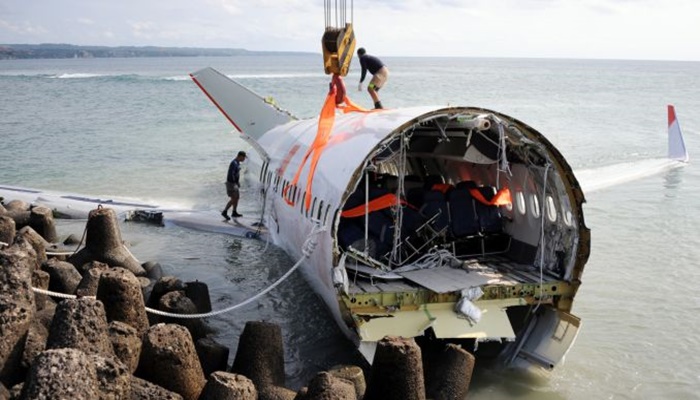
Boeing made incorrect assumptions about how pilots would respond to system malfunctions on its 737 MAX aircraft, and this contributed to the Lion Air plane crash in Oct. 2018, Indonesian investigators told families of the victims on Wednesday.
A Lion Air passenger jet plummeted into the Java Sea after take-off from Jakarta’s Soekarno-Hatta International Airport on Oct. 29, killing all 189 people on board.
The National Transportation Safety Committee’s final report into the crash, presented in a slideshow to the victims’ families in Jakarta, said incorrect assumptions about pilot response to malfunctions was a contributing factor.
“During the design and certification of the Boeing 737-8 (MAX), assumptions were made about pilot response to malfunctions which, even though consistent with current industry guidelines, turned out to be incorrect,” the committee wrote on one of the slides.
Crash investigators had looked into the role of a feature in the aircraft known as the manoeuvring characteristics augmentation system (MCAS), designed to prevent the plane’s nose from getting too high and causing the aircraft to stall.
The system’s reliance on one sensor made it vulnerable to erroneous input, investigators said.
“Based on the incorrect assumptions about pilot response and an incomplete review of associated multiple flight deck effects, MCAS’s reliance on a single sensor was deemed appropriate and met all certification requirements,” a slide in the report read. (dpa/NAN)






